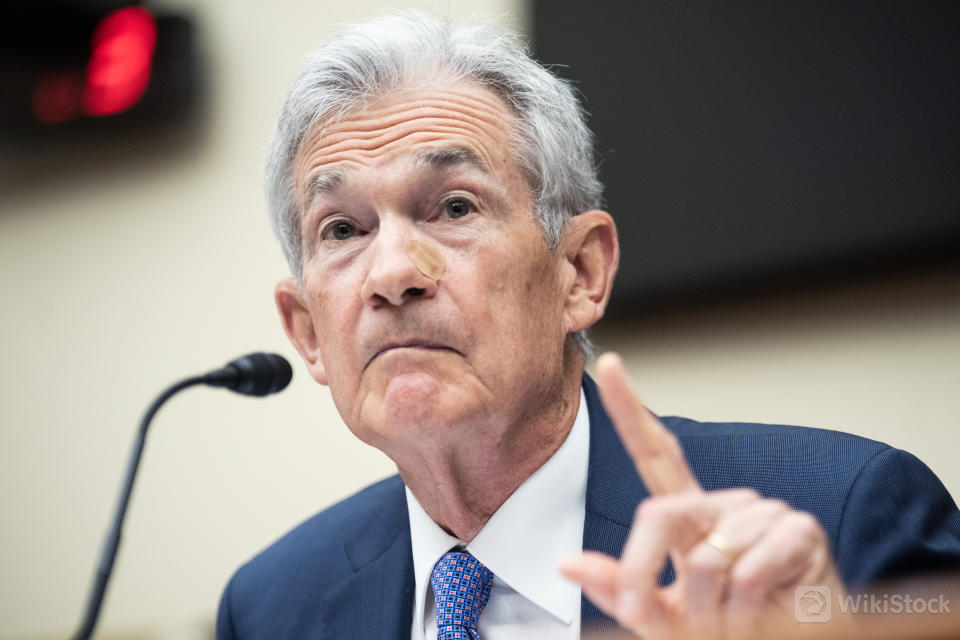Inflation and the start of tech earnings: What to know this week
Stocks pulled back from record highs amid pressure across the technology sector after a global tech outage sent shockwaves throughout the market on Friday.
The S&P 500 (^GSPC) ended the week down nearly 2% while the Nasdaq Composite (^IXIC) dropped more than 3.5% on the week. Both indexes had their worst weekly performance since April. Meanwhile, the Dow Jones Industrial Average (^DJI) rose about 0.7%.
This week, critical readings on economic growth and inflation, as well as the start of Big Tech earnings, will determine if the malaise continues.
On the economic data side, the advanced reading of second quarter economic growth is slated for Thursday, followed by the June reading of the Personal Consumption Expenditures index, the Fed's preferred inflation gauge, on Friday.
Inflation outlook
Last week, new data showing a slowdown in inflation prompted markets to put the chances that the Federal Reserve cuts rates by the end of its September meeting at 100%.
The week ahead will bring another look at inflation, this time with the Fed's preferred gauge: The Personal Consumption Expenditures (PCE) index.
Due out on Friday, economists expect “core” PCE increased 2.5% in June from the previous year, down from May's 2.6% annual gain. Over the prior month, economists expect “core” PCE rose 0.2%, slightly above May's 0.1% increase.
The release comes less than a week before the Fed's next monetary policy decision on July 31. Markets are widely expecting the central bank to hold interest rates steady.

Federal Reserve Chair Jerome Powell testifies during the House Financial Services Committee hearing titled “Federal Reserve's Semi-Annual Monetary Policy Report” in Rayburn building on Wednesday, July 10, 2024. (Tom Williams/CQ-Roll Call, Inc via Getty Images) (Tom Williams via Getty Images)
Growth check
One key question on investors' minds is whether the economy can remain resilient with rates still at their most restrictive levels in more than two decades.
Thursday will bring the first reading of Gross Domestic Product (GDP) for the second quarter. Economists expect the US economy grew at an annualized pace of 1.9% in the second quarter, up from the 1.4% growth rate seen in the first quarter.
Bank of America Securities head of economics Michael Gapen summed up expectations for the upcoming week's data release in a weekly note, writing,“ The data should show healthy activity, and that inflation is moving in the right direction.”
Signs of a rotation
Since investors have become more optimistic about the likelihood of multiple interest rate cuts this year, a shift has been underway within the stock market.
Story continues
In the past 10 days, Real Estate (XLRE) and Financials (XLF) have led individual sector action. Meanwhile the market's biggest winners of the past year, Technology (XLK) and Communication Services (XLC) , have recently been the worst-performing sectors in the S&P 500.
And the rotation has finally trickled down in cap size too, with small caps joining the 2024 stock market rally.
The small-cap Russell 2000 (^RUT) is up about 8% over the past month, while the S&P 500 is up less than 1% in the same time period, sparking debate over whether this bout of small-cap outperformance can continue.
“We think there is room for the rotation into low quality to persist if rate cuts remain priced and the Trump 2.0 trade carries on ahead of US elections,” UBS Investment Bank US equity derivatives strategist Maxwell Grinacoff wrote in a note to clients on Thursday.
Big Tech earnings on tap
With Big Tech stumbling amid the market rotation, the fundamental story for some of the stock market's largest names will be in focus in the week ahead.
Tesla and Alphabet are slated to report earnings after the bell on Tuesday. Second quarter results from the two Magnificent Seven members will provide an early read on investor appetite for the most popular trade of 2023. Both stocks are up double digits over the past six months despite the recent sell-off.
The question is whether the AI-fueled trajectory upward can continue.
“The biggest risk heading into the next six to eight weeks is, are we setting ourselves up for this AI disappointment [in earnings]?” Ryan Grabinski, Strategas Research Partners managing director of investment strategy, told Yahoo Finance. “Do all of the trades that were associated with AI ultimately begin to unwind themselves?”
How Big Tech companies perform will likely determine the trajectory of earnings growth for the broader S&P 500. Four companies — Alphabet, Nvidia (NVDA), Meta (META), and Amazon (AMZN) — are expected to grow earnings by 56.4% compared to the same period a year prior, according to FactSet senior earnings analyst John Butters. The other 496 are expected to grow earnings by just 5.7%.
When combining the two groups, the S&P is currently on pace to produce year-over-year earnings growth of 9.7%. This would mark the best quarter for earnings growth since the fourth quarter of 2021.
Byte refutes rumors of speculation on A-share Doubao concept stocks
How to develop a low-altitude economy
Doubao concept surges, IPO economy booms
5G enters the "second half", which stocks are the best to buy
Check whenever you want
WikiStock APP
